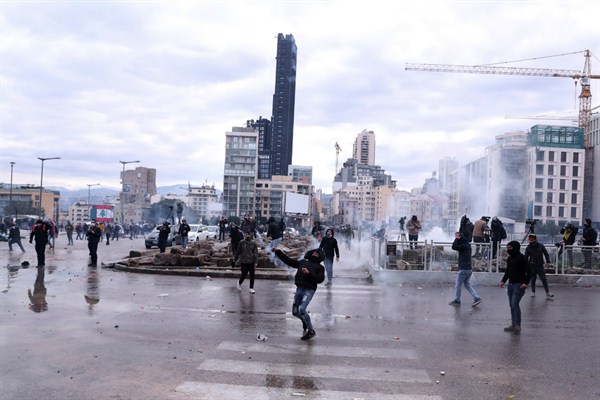After four months of widespread protests, Lebanon has a new government. Voted in by a slight majority in parliament in late January, it must deal with the gargantuan task of an economic meltdown of historic proportions, and of assuaging countrywide protesters questioning the legitimacy of the entrenched political elite. Lebanon’s economy, and with it perhaps its long-term political fortunes, are at stake.
Since October, protesters across Lebanon, disillusioned with the gross political and economic mismanagement of successive governments, have demanded sweeping reforms. They have put the blame squarely on elites who draw their influence from Lebanon’s dysfunctional power-sharing system. This confessional model, which distributes the country’s top political seats based on sectarian identity, has weakened state institutions; enabled a culture of clientelism, corruption and rent-seeking; and hindered effective and rational policymaking. Instead of the public good or public commons, there are only the private interests needed to maintain the system, even if they bankrupt the country.
According to a 2016 World Bank report, patronage politics cost Lebanon an estimated 9 percent of GDP annually, in part because the country rarely punished corruption among elites. Meanwhile, inequality has exploded, with the richest 1 percent of Lebanese earning 25 percent of Lebanon’s national income.

